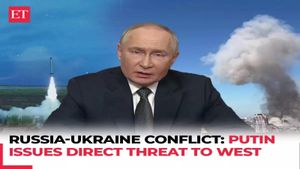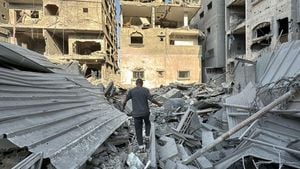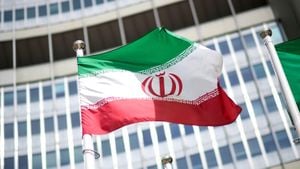International tensions are intensifying as the International Criminal Court (ICC) has issued arrest warrants for Israeli Prime Minister Benjamin Netanyahu and former Defense Minister Yoav Gallant over allegations of war crimes. The warrants, announced this past Thursday, are part of the court's investigation linked to the violent conflict between Israel and Hamas, particularly following the catastrophic events of October 7 when Hamas conducted attacks killing around 1,200 Israelis, leading to heightened military actions by Israel, which resulted in significant casualties, primarily among civilians in Gaza.
The ICC has stated it has found substantial reasons to believe Netanyahu and Gallant bear responsibility for serious offenses, including the war crime of starvation as a tactic of warfare and various crimes against humanity. The charges against them are grave; they include allegations of deliberately causing severe suffering to civilians by blocking food, medical supplies, and humanitarian aid, as well as intentionally targeting civilian structures during military operations. Similarly, Hamas military leader Mohammed Deif is accused of numerous heinous acts, including murder and torture.
Despite the severe nature of these accusations, Israeli officials have vehemently rejected the legitimacy of the court's actions. Netanyahu dismissed the charges as 'false and absurd,' arguing the ICC operates as a politically biased entity without jurisdiction over Israel, which is not a signatory to the Rome Statute—the treaty establishing the ICC.
The ICC's situation is complex. It relies on the cooperation of its member states for enforcement. With over 120 countries, including many European nations, being signatories, the legal obligation to detain and surrender these men could hinder their international travel. Legal experts suggest it may become problematic for them to visit friendly nations due to this warrant. For example, several European leaders have expressed adherence to their obligations under international law, stating they would arrest the Israeli leaders were they to enter their territories.
The situation is complicated by the fact the ICC lacks its own police force and has historically depended on state cooperation to enforce its warrants. The absence of enforcement capabilities means actual arrests face significant barriers, particularly as neither the U.S. nor Israel formally recognizes the court's authority. The U.S. has stated its opposition to the ICC's jurisdiction and has condemned the issuance of the warrants.
Experts also note the possibility of immunity as Netanyahu and Gallant might invoke legal arguments to avoid arrest based on their positions. Functional immunity could potentially apply to acts performed during their official capacity, though international legal precedents suggest this may not hold strong against the charges of war crimes.
According to international law professor Giulia Pinzauti, legal frameworks suggest heads of state do not enjoy immunity before the ICC, implying both men would face significant challenges if they attempted to claim this defense. Currently, legal analysts acknowledge there is no clear path toward trial anytime soon, primarily due to Israel and the U.S.'s lack of cooperation.
The ramifications of the ICC’s decision extend beyond immediate legal troubles for Netanyahu and Gallant. The issuance of the warrants could affect diplomatic engagements and military support from nations wary of being entangled with potential war criminals. Observers anticipate potential strains on Israel's relationships with allies as they grapple with their legal obligations under international law.
The warrants are generating significant debate and scrutiny, especially as they represent one of the first times high-ranking Israeli officials have faced such international legal challenges. Some observers suggest this could lead to broader discussions about accountability for leaders involved in conflicts resulting in mass civilian casualties.
While many aspects of this situation remain unclear, what is certain is the chilling effect these warrants may impart on Netanyahu and Gallant's future international engagements. The growing cluster of nations willing to hold leaders accountable for their actions may usher in new dynamics within the international legal framework concerning war crimes and human rights violations, even if actual arrests are unlikely to follow swiftly.
With major uncertainties looming on all sides, one thing remains impactful: the ICC's actions serve as both a warning and potential shift toward greater accountability for state leaders implicated in violating international humanitarian laws.



